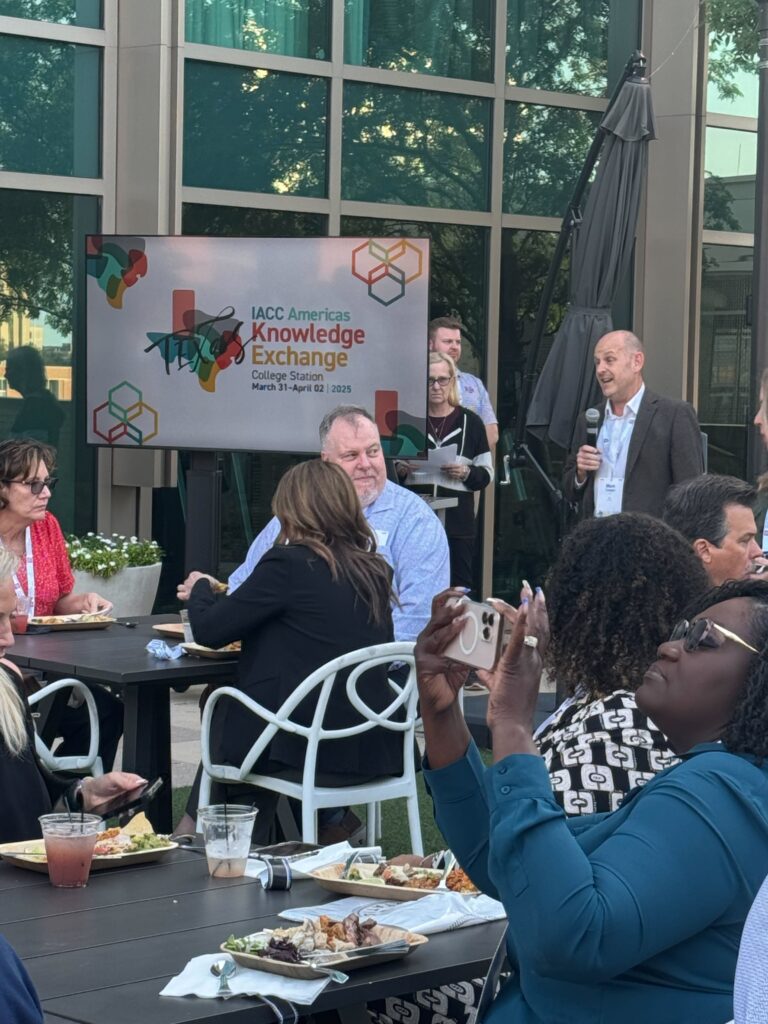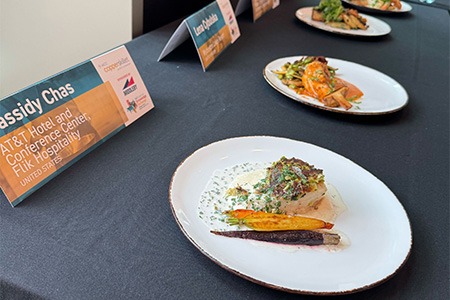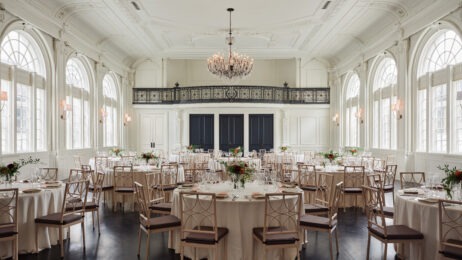Inside IACC’s vision for a smarter, greener future in meetings and hospitality
Attendees at this year’s 2025 IACC Americas Knowledge Exchange in College Station, Texas, were in for an exciting experience. The annual event offered a wide range of education sessions on sustainability, connection, F&B, leadership and so much more.

Smart Meetings Compared to last year, what made this year’s event different? What were you trying to do that hadn’t been done before?
Mark Cooper Two big things: rebuilding knowledge and increasing efficiency through automation. Rebuilding knowledge is crucial now that we’ve spent the last few years rebuilding the workforce. We’re doing that through educational channels and by fostering openness—like our global innovations session, where members share what worked for them and what didn’t.
On the efficiency and automation side, it’s not about removing hospitality—far from it. It’s about automating behind the scenes, where the guest doesn’t see it. With staff shortages and rising costs, automation lets us maintain quality. Tech companies are bringing in incredible innovations—robotic pizza makers and conveyor belt systems that cook a steak to perfection without a human flipping it. These kinds of tools improve consistency and cost-efficiency.
SM How do you decide on the themes and sessions for the conference?
Read More: Trending Insights: 3 Key Trends Shaping the Meetings Industry in 2025
 MC We take inspiration from multiple sources—our leadership teams, volunteer groups and our own research. Last year, we saw AI becoming a trend for meeting planners, but nobody was talking about its role in venue operations. So, [this year] we focused on AI and built out keynotes, breakouts and white papers [around that topic].
MC We take inspiration from multiple sources—our leadership teams, volunteer groups and our own research. Last year, we saw AI becoming a trend for meeting planners, but nobody was talking about its role in venue operations. So, [this year] we focused on AI and built out keynotes, breakouts and white papers [around that topic].
This year, sustainability continues to be huge. We brought in Eco Products and created an education track around climate and sustainability. Basically, we look at the problems the industry is facing and design sessions to meet those needs.
And IACC is always about openness and knowledge exchange. We attract the best of the best—certified venues that offer a gold-standard meeting experience. When our community comes together, it’s about sharing ideas, not competing.
SM During your opening remarks, you talked about “Meeting Room of the Future.” Can you expand on that concept?
MC Ah, yes! That was a bit of an April Fool’s joke, but there’s truth behind it. Even if something feels out of reach today—like meetings on the moon—things are moving fast. Once people are hanging out on the moon, you better believe they’ll need a meeting space that’s not just a capsule.
We stretch ourselves to imagine: What’s possible in three years? That’s our window—long enough to innovate, but close enough to be tangible. If we want richer, more immersive experiences, we ask: What aren’t we doing yet? And what can we borrow from best practices elsewhere?
But none of that innovation means anything without strong leadership and foundational knowledge. That’s why we include speakers on negotiation, influence and professional development. It’s all connected.
 SM Food has played a big role in this event. Where does sustainability factor into that?
SM Food has played a big role in this event. Where does sustainability factor into that?
MC Food waste management is a core focus. During our study tour, for example, we dined in a way that emphasized small plates and responsive service—food was only brought out as needed, not overproduced.
Read More: Food Waste Management: Ditching the Dump
You’ll notice our break stations follow that philosophy—smaller, efficient portions that reduce excess. In our Copper Skillet competition, chefs are judged and penalized on food waste. They’re encouraged to use every part of an ingredient—even tomato peels.
We also avoid food and beverage minimums at our conferences. Those minimums tend to promote overordering, which goes against our sustainability goals.
SM Is free Wi-Fi becoming a standard expectation at IACC-certified venues?
MC Yes, and it should be. Most IACC venues offer complimentary guest Wi-Fi. While it’s not a formal requirement, we strongly advocate for it—it’s part of our culture. I always say that Wi-Fi should be like hot water in a hotel room. You shouldn’t pay extra for it.
We also focus heavily on internet infrastructure and security, especially for smaller venues. It’s essential.




